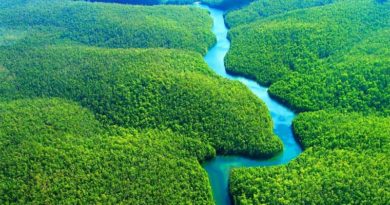UN groups honour 20 African eco-enterprises with SEED awards
Shoes made from old tires by disabled artisans in Ghana, roads built from recycled plastic in Kenya, natural fertilizers made from water hyacinths in Burkina Faso. Those are just some of the 20 African eco-innovations honoured this year with the prestigious SEED Awards.
Founded in 2002 by UN Environment, UN Development and the International Union for Conservation of Nature (IUCN), the SEED global partnership recognizes the most innovative, environmentally friendly start-ups in developing countries and provides them with technical support and business know-how to help them grow and share their experiences.
Erik Solheim, Head of UN Environment: “Small and growing businesses in developing countries are helping drive green economies, and are vital to achieving global goals for green growth. The 2016 SEED Winners are exceptional examples of entrepreneurial talent that not only support green growth goals, but inspire other individuals and businesses to contribute as well. From innovative waste management in Mauritius to solar power deployment in Burkina Faso, SEED Winners are driving their local and national economies toward resource efficiency, and growing Africa as a hub of sustainability innovation.”
Helen Clark, Head of UN Development: “The 2016 SEED Winners are living the SDGs. With their innovative business models, they are improving local livelihoods while conserving natural resources. Their businesses rely on strong multi-stakeholder partnerships at the local level, a success factor UNDP is building upon internationally to implement the Sustainable Development Goals.”
Inger Andersen, Director General IUCN: “Since IUCN co-founded SEED in 2002, the partnership has come a long way in supporting eco-inclusive enterprises worldwide. More than 200 SEED Winners around the globe have found solutions to turn the conservation of natural resources into sustainable livelihoods for their local communities. With great pleasure I welcome 20 new innovative eco-enterprises from Africa to this group of frontrunners for sustainable development.”
This year’s 20 SEED Award winners include companies and cooperatives from Burkina Faso, Ghana, Kenya, Malawi, Mauritius, Namibia, South Africa and Uganda whose business models help to overcome sustainable development challenges of those countries. By facilitating the scale-up and replication of eco-innovations SEED boosts local economies and tackles poverty, while promoting the sustainable use of natural resources and ecosystems.
The 2016 SEED Awards are sponsored by the SWITCH Africa Green Project implemented by UN Environment and funded by the European Union, by the Government of Flanders and by the international law firm Hogan Lovells. A special SEED Gender Equality Award aimed at promoting gender equality and women’s empowerment will go to a community-based initiative in Kenya, which uses renewable energy to enable women entrepreneurs run a restaurant and catering, and offer sanitation and phone-charging services.
Every SEED Award winner will receive free access to supporting institutions, and tailor made assistance over a period of six months to develop their business. The support methodology and content is based on more than 10 years of experience in assisting eco-inclusive enterprises worldwide. The winners will also join a network of more than 200 enterprises from 38 countries in Africa, Asia and Latin America – laureates of the SEED Awards.
All Winners are honoured at the International Awards Ceremony held Wednesday at the SEED Africa Symposium in Nairobi, Kenya. The symposium brings together over 500 entrepreneurs, policymakers, and representatives from civil society and support institutions from across Africa and beyond. The 2016 edition’s theme is “From Innovation to Imitation – Replicating Successful Business Models for Green Growth and Sustainable Development”.
This year’s 20 winning enterprises were selected by an independent Jury of International Experts out of more than 500 applications. The innovative enterprises are active in the sectors of agriculture, waste management, energy, manufacturing, biodiversity conservation and tourism.


